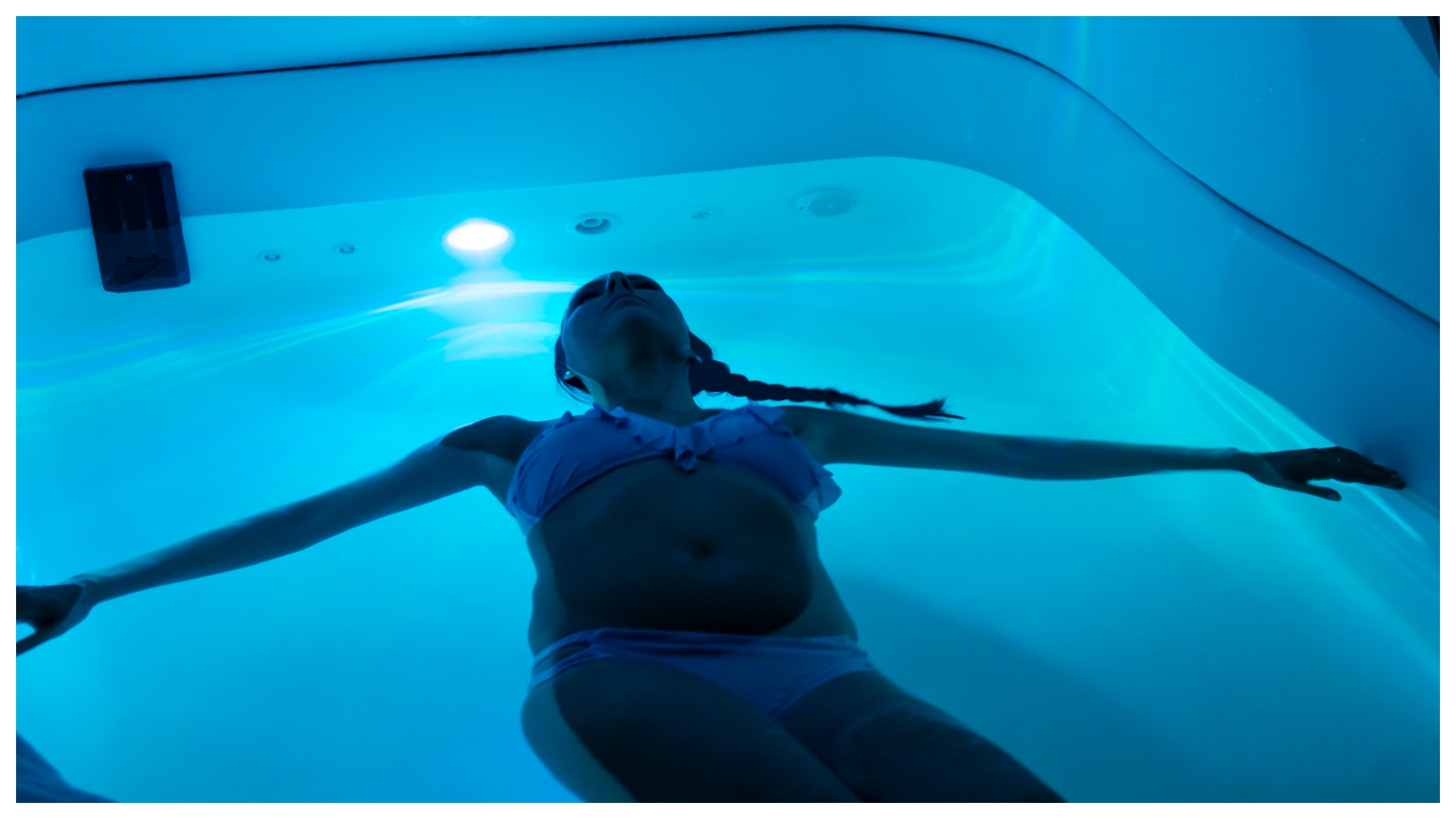
Recently, I went on a bit of a wellness kick. My 37th birthday happened to fall right in the middle of it. I had just sworn off alcohol and was trying to embrace feeling good in my body and in my mind without the false comfort booze provides. So, to mark the coming of a new year, I wanted to really lean into that.
Rather than going out and celebrating by drinking and feeling totally wrecked the next day — because having more than a couple of drinks has that effect on this 37-year-old body — I decided to have an entire day dedicated to real wellness. The kind that might actually do some good or stick with me.
With that, I decided to give flotation therapy a try.
Flotation therapy had been on my radar for a while. I'd read some articles about it in the past, and honestly, it just looked really relaxing. I wasn't exactly sure what the benefits were, though. So before I signed up for my float, I did some research.
I was really interested in feeling good in my body, which I found was definitely a benefit of using float tanks. That's why so many athletes take part in the practice as a part of sports recovery. But I was even more interested in the possible mental health benefits.
I found a video online about a reporter's personal account with using a float tank. While hooked up to devices that measured his heart rate and breathing, it was easy to see how relaxed he became. In fact, he was breathing only one to two breaths per minute. It was almost like being asleep … but not!
According to WebMD, the main benefit of using a sensory deprivation tank is to ease mental anxiety and muscle tension. But many people say that floating has done much more than that for their mental health.
Many people believe that floating can help relieve symptoms of anxiety and depression long-term, as well as increase mental clarity. To me, that was the most intriguing part. As someone who has struggled with my own mental health in recent years, I'm always interested in how to turn off the mental chatter in the same way that meditation does.
Because I've never been big into meditating, a sensory deprivation tank seemed like a great alternative. After all, meditating can be boring. It's hard for a lot of people to really sink into. In a float tank, though, I imagined it would feel good enough to want to stay put.
There seemed to be enough evidence out in the world about the benefits of floating, so I went ahead and signed up. I decided to make my day extra special by adding on some other services for a full day of relaxation.
On the day of the float, I began by heading into a sauna for 30 minutes. Having a good sweat is great for detoxification. That would prep my body to be able to relax. While some people really hate to sweat, I find it to be pretty therapeutic. But after 30 minutes, I was ready to find out what this floating thing was all about.
I was led into a low-lit room. I was surprised by the fact that, aside from the float tank, there was also a shower and a changing area. I was told to shower before and after. There were also ear plugs, a floating head rest, and petroleum jelly for any cuts or scrapes that might burn from the salty water.
I rinsed off in the shower and hopped on in.
Because I had done my research, I anticipated that I may not be able to relax immediately. And I definitely didn't. As soon as I got into the water, I realized that floating completely, without anything like a raft or a life vest, is a pretty strange feeling. I kept trying to keep myself afloat, even though there was no need. I found myself sort of engaging my core when all I really wanted to do was relax.
After about 10 or 15 minutes, I started to let go. I felt my muscles just begin to soften. And my brain space got quiet, too.
Pretty soon, I was losing track of time completely. At the same time, I just wanted to keep floating along.
While mostly I felt like I was half-asleep, I did notice a few things while I was immersed in the salty water. The strangest sensation, aside from just feeling like my muscles were totally at ease, was that it almost became hard to tell where my limbs started and ended.
After 60 minutes of doing absolutely nothing, the lights brightened and the music turned off. That was how I knew my float had come to an end. Honestly, I didn't want to move.
I'd heard so many mixed reviews about floating that I truly hadn't known if I would enjoy it. Some people I talked to said they simply hated it or couldn't relax. I worried that might be the case for me, as someone who struggles to relax in daily life and certainly in a seated meditation. Luckily, it wasn't.
After my float, it was time for my massage. The massage wasn't anything special. Actually, my massage therapist left a bit to be desired. But it was still a great way to work out any remaining tension my muscles were holding onto. The float tank was absolutely the highlight of my day, however.
Throughout the rest of the day, I absolutely felt calmer than usual. I'm not sure if that was a result of being in a meditative state for an hour or just because my body had been so relaxed. Either way, it seemed to do the trick for me.
When it comes to float tanks, I'm super sold. I can't wait for my next float, which I have scheduled in a couple of weeks. When it comes to new-age wellness, this therapy is time well spent.




